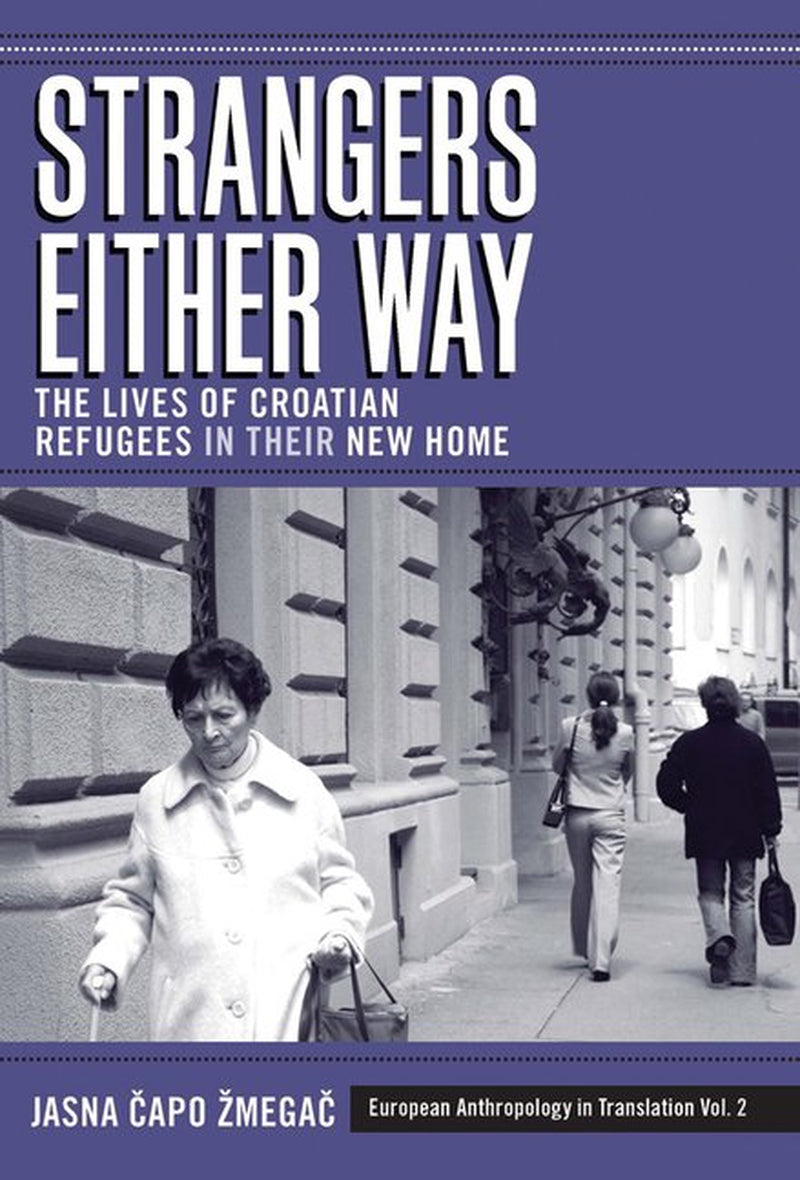Bust-Down Books
Strangers Either Way: Lives of Croatian Refugees by Jasna Čapo Zmegač
Strangers Either Way: Lives of Croatian Refugees by Jasna Čapo Zmegač
Couldn't load pickup availability
Strangers Either Way: The Lives of Croatian Refugees in Their New Home
by Jasna Čapo Zmegač
Paperback Book Edition || European Anthropology in Translation Vol. 2 || Balkan Textbooks
Croatia gained the world's attention during the break-up of Yugoslavia in the early 1990s. In this context its image has been overshadowed by visions of ethnic conflict and cleansing, war crimes, virulent nationalism, and occasionally even emergent regionalism. Instead of the norm, this book offers a diverse insight into Croatia in the 1990s by dealing with one of the consequences of the war: the more or less forcible migration of Croats from Serbia and their settlement in Croatia, their "ethnic homeland."
" ...an accessible text that makes, and evidences, hypotheses about identity-building, cross-cultural strategies, and the processes of co-ethnic migration."
- JRAI
"The translation to the lingua franca of today's world is a very good decision, since this remarkable text would have otherwise remained unknown to readers not fluent in Croatian... [It] contributes to a better understanding of identity dynamics and creation of multicultural interaction in a national context."
- Anthropological Notebooks
This important study shows that at a time in which Croatia was perceived as a homogenized nation-in-the-making, there were tensions and ruptures within Croatian society caused by newly arrived refugees and displaced persons from Serbia and Bosnia and Herzegovina.
"This is an excellent addition to the literature on the experience of migration... Čapo Zmegač... is well informed... The theoretical treatments are useful and well supported... The translation is very good, and the epilogue reflecting on the Croatian reception of Čapo Zmegač's work in 2002 is an unusual and valuable methodological contribution. Highly recommended."
- Choice
"... a welcome addition to the field of forced migrations for it makes a significant exploratory step into the understudied phenomena of cultural dynamism and identity (re)construction among co-ethnic migrants (refugees) in the post-Yugoslav space."
- Austrian History Yearbook
Refugees who, in spite of their common ethnicity with the homeland population, were treated as foreigners; indeed, as unwanted aliens.
Jasna Čapo Zmegač
A senior research fellow at the Institute of Ethnology and Folklore Research in Zagreb and adjunct professor at the University of Zagreb.
She has a multi-disciplinary background in ethnology, cultural anthropology, demography and French literature. She studied at the University of Zagreb before doing her MA and PhD at Berkeley. She was a postdoctoral fellow in Strasbourg and Vienna, a Humboldt Fellow in Munich and Berlin, and a visiting fellow at various European universities.
Her current research interests are in the field of anthropology of migration, especially forced and labor migration, and the politics of identity construction in diaspora settings.
Share

